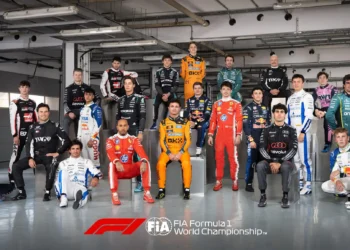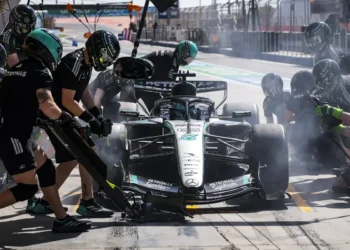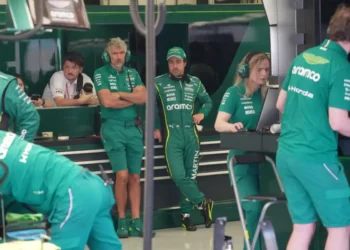FIA EXPOSES RED BULL’S LEGAL TRICKERY IN BRAZILIAN GP POWER UNIT CONTROVERSY!
In a shocking revelation, Nikolas Tombazis, the FIA’s chief of single-seaters, has thrust the spotlight onto Red Bull’s strategic maneuvering regarding Max Verstappen’s power unit during the Brazilian Grand Prix. The controversy has ignited a firestorm of debate within the motorsport community, as McLaren’s Andrea Stella raised legitimate concerns about whether this power unit change could breach the budget cap regulations.
Stella’s inquiry into Red Bull’s decision to swap out Verstappen’s power unit has prompted the FIA to clarify the rules surrounding such actions. Was this a necessary change due to performance issues, or was it an underhanded strategy to gain an edge? The stakes are high, and the implications could be monumental as teams navigate the murky waters of F1 regulations.
While addressing the pressing questions on this contentious topic at a Friday press conference, Tombazis candidly admitted, “As the FIA, we haven’t wanted to get embroiled in situations where, after a power unit change, we have to discuss with the team or the PU manufacturer whether a specific telemetry indicates a potential reliability issue.” His admission raises eyebrows regarding the FIA’s capacity to effectively oversee compliance with the rules.
The revelation highlights a crucial loophole in the current regulations that Red Bull seems to have exploited masterfully. Tombazis continued, “When you find yourself in these gray areas, it becomes difficult. This is a weak point in the current rules.” The FIA’s struggles with clarity and enforcement present a unique opportunity for teams like Red Bull to operate in the shadows of ambiguity.
But what does the future hold? Tombazis assured, “By 2026, this issue will be resolved. Engine manufacturers would never find it advantageous to opt for a strategic replacement, as it would cost them a million every time.” The looming changes signal a potential shift in F1 dynamics, as teams may no longer have the freedom to navigate around these regulatory gaps.
For this season, however, the absence of a cost cap on power units remains a glaring vulnerability in the rules, leaving teams like McLaren questioning the integrity of the competition. The motorsport world is left to wonder: How many more secrets lie beneath the surface of F1’s complex regulations? With Red Bull at the helm of this latest controversy, fans and analysts alike are bracing for the fallout from this high-stakes chess game that is Formula 1 racing.
As the dust begins to settle on this explosive situation, one thing is clear: the FIA’s battle to maintain fairness in the sport is far from over, and the implications of this revelation could ripple through the fabric of Formula 1 for years to come. Stay tuned for further updates as the drama unfolds!










